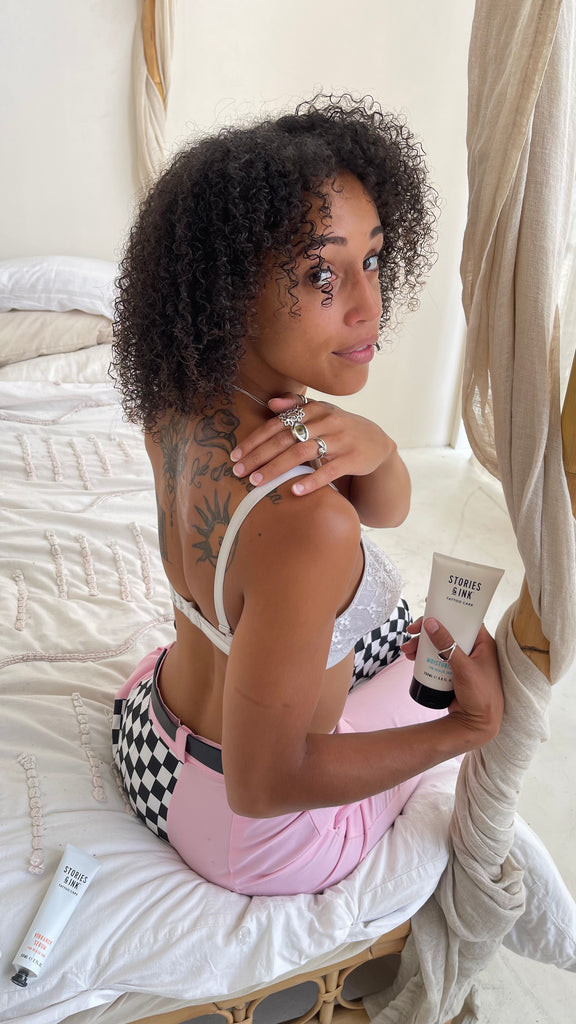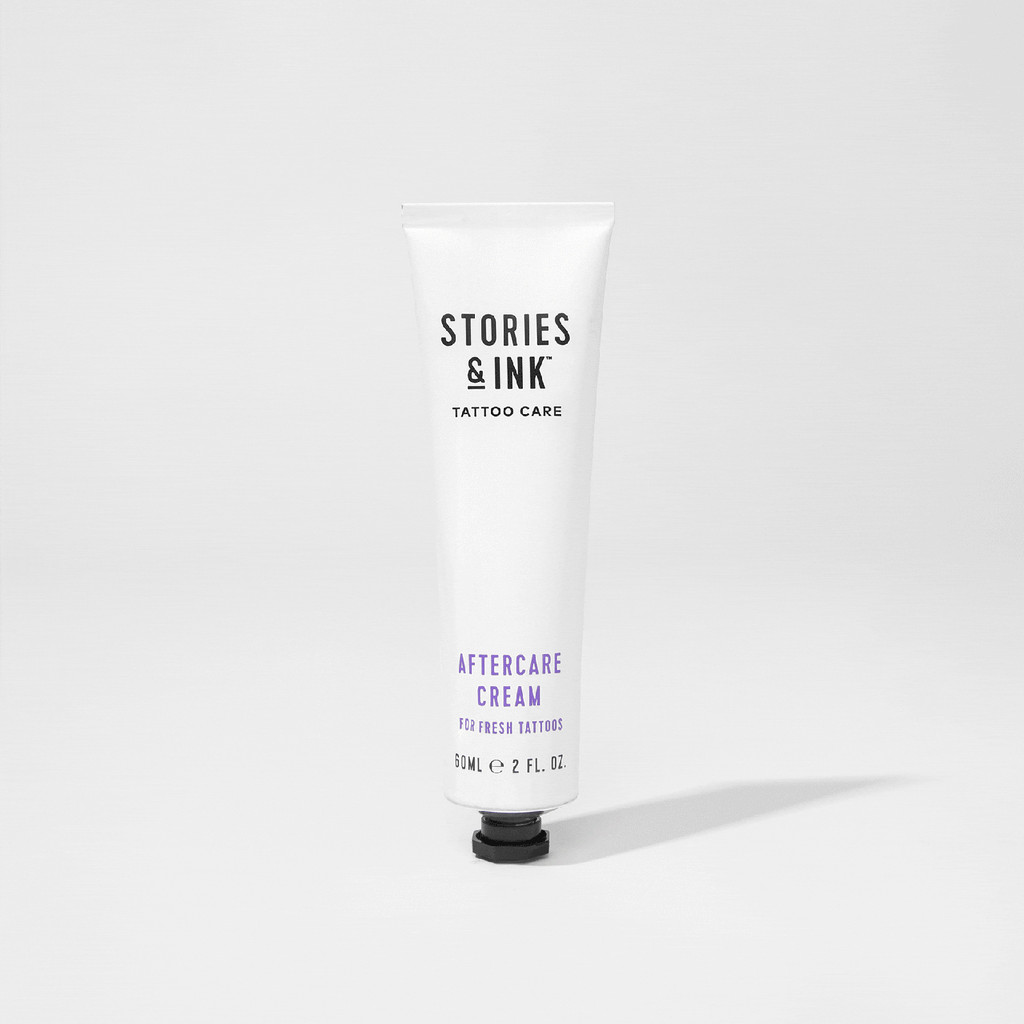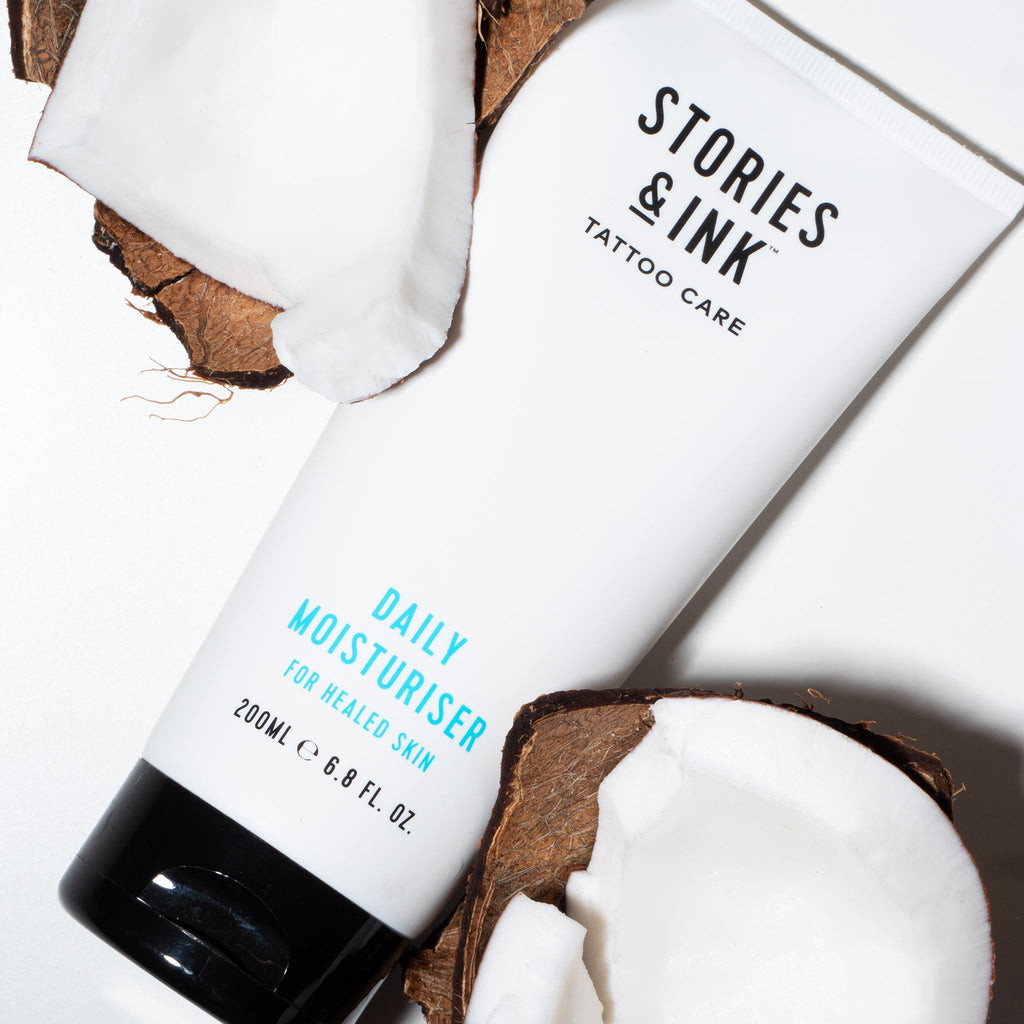Tattoo itching is a very common experience, and while it can be irritating, it’s usually a sign that your skin is healing. If you’re experiencing the urge to scratch your new ink, or even an older tattoo, you’re not alone. In this guide, we’ll explore the common reasons behind tattoo itching, how long you can expect it to last, and, most importantly, what you can do to soothe the itch and promote proper healing.
Decoding Tattoo Itching: What’s Normal and What’s Not
Tattoo itching is essentially the sensation that creates the urge to scratch or rub the skin where you have a tattoo, whether it’s freshly done or years old. It’s often a normal part of your body’s healing process after getting new ink, as your skin works to repair the tiny punctures created by the tattoo needles. The intensity of the itch can vary greatly, from a mild tickle to a persistent and distracting urge.
New Tattoo Itching: Unpacking the Common Causes
Several factors contribute to why new tattoos itch. Understanding these causes can help you manage the itching effectively.
- The Natural Healing Process: Getting a tattoo involves needles creating tiny wounds in your skin. As your body starts to heal this “injury,” it goes through several stages, including inflammation, scabbing, and skin regeneration. Each of these stages can trigger itching.
- Skin Regeneration: As new skin cells generate and replace the damaged ones, nerve endings can become more sensitive, leading to itchiness. This is a sign of your skin renewing itself.
- Scabbing and Peeling: As your tattoo heals, it’s normal for scabs to form and for the top layer of skin to peel. This process can be quite itchy as the dry, flaking skin tugs at the surrounding area.
- Histamine Release: When your skin is injured (like during tattooing), your body releases histamine, a chemical that helps with the healing process. Histamine is also a key player in allergic reactions and can cause itching.
- Ink as a Foreign Body: Your immune system recognizes tattoo ink as a foreign substance. The immune response, while protecting your body, can also contribute to inflammation and itching as the body works to process the ink.
 Woman applying tattoo aftercare cream
Woman applying tattoo aftercare cream
Proper tattoo aftercare, including consistent moisturizing, is crucial for preventing dryness and alleviating itchiness during the healing process.
How Long Will the Tattoo Itch Last?
The duration of tattoo itching is different for everyone. Generally, you can expect a new tattoo to itch for about 1 to 3 weeks. This timeline coincides with the primary stages of skin healing. However, several factors can influence how long your tattoo itches:
- Individual Healing Rate: Everyone’s body heals at its own pace. Factors like age, overall health, and immune system strength can affect healing time and thus, the duration of itching.
- Tattoo Size and Location: Larger tattoos or tattoos in areas with more nerve endings might experience more intense or prolonged itching.
- Aftercare Routine: Following a proper aftercare routine, including moisturizing and keeping the tattoo clean, can significantly impact healing and itching. Poor aftercare can prolong itching and increase discomfort.
When Tattoo Itching and Raising are a Red Flag
While itching is usually normal, if your tattoo is itching and raised, especially if it’s an older tattoo, it could signal a problem.
- Allergic Reactions: An allergic reaction to tattoo ink (especially red ink) or aftercare products can cause intense itching, redness, bumps, and raised skin. This can happen even years after getting the tattoo.
- Infection: Although less common with proper aftercare, a tattoo infection can cause increased itching accompanied by other symptoms like swelling, pain, heat, pus, and a foul odor. If you suspect an infection, seek medical advice immediately.
- Scarring or Keloids: In some cases, raised and itchy tattoos can be related to scar tissue formation, including hypertrophic scars or keloids. These are more likely in individuals prone to scarring.
- Skin Conditions: Existing skin conditions like eczema or psoriasis can sometimes flare up around tattoo sites, leading to itching and raised patches.
If you experience intense itching accompanied by any of these symptoms, consult a dermatologist or your tattoo artist to rule out complications and get appropriate advice.
Effective Ways to Stop Tattoo Itching and Find Relief
Resisting the urge to scratch is paramount for proper tattoo healing. Here are safe and effective ways to relieve tattoo itching:
- Avoid Scratching – Pat, Don’t Scratch: Scratching can severely damage your healing tattoo, leading to infection, scarring, and ink loss. Instead of scratching, gently pat or tap the itchy area to alleviate the sensation without harming the skin.
- Keep it Clean: Gently wash your tattoo twice a day with a mild, fragrance-free antibacterial soap and lukewarm water. Pat it dry with a clean paper towel. This removes irritants and keeps the area hygienic.
- Moisturize, Moisturize, Moisturize: Regularly apply a thin layer of fragrance-free, hypoallergenic tattoo aftercare lotion or ointment recommended by your tattoo artist. Moisturizing prevents dryness, keeps the skin supple, and significantly reduces itching.
- Cold Compress Relief: Applying a cool compress or an ice pack wrapped in a clean cloth can provide immediate, temporary relief from itching and inflammation. Apply for 10-15 minutes at a time, ensuring the ice doesn’t directly touch the skin.
- Loose and Breathable Clothing: Wear loose-fitting, breathable clothing over your tattoo. Tight clothing can rub against the tattoo, causing irritation and worsening the itch. Opt for cotton or other soft, natural fabrics.
- Oatmeal Baths (for Older Tattoos): For persistent itching in older tattoos (not new, open wounds!), a lukewarm bath with colloidal oatmeal can soothe irritated skin and reduce itching.
- Antihistamines (Consult Professional): If the itching is severe and disruptive, over-the-counter antihistamines might help, especially if histamine release is a major factor. However, consult with a pharmacist or doctor before taking any medication, particularly for new tattoos.
The Originals Pack is designed to support your tattoo aftercare routine, and explore our comprehensive range of tattoo care products here.
 Stories & Ink tattoo aftercare cream
Stories & Ink tattoo aftercare cream
Stories & Ink Aftercare Cream, formulated to be hypoallergenic, fragrance-free, vegan, and cruelty-free, provides gentle and effective care for healing tattoos.
Why Slapping Your Tattoo is a Bad Idea
While the momentary sting of slapping your tattoo might seem to offer fleeting relief from itching, it’s definitely not recommended. Slapping can cause further irritation to the healing skin, potentially leading to damage, scarring, and even ink fallout. It’s a short-term “fix” with long-term risks that outweigh any perceived benefit.
The Consequences of Scratching Your Healing Tattoo
Giving in to the urge to scratch can have several negative consequences for your new tattoo:
- Increased Risk of Infection: Your fingernails can harbor bacteria. Scratching introduces these bacteria into the healing wound, significantly increasing the risk of infection.
- Scarring: Aggressive scratching can damage the delicate new skin and disrupt the healing process, leading to permanent scarring and altering the appearance of your tattoo.
- Delayed Healing: Scratching prolongs the healing process by further irritating the skin and potentially reopening wounds.
- Ink Loss: Scratching can pull away scabs prematurely and even dislodge tattoo ink, leading to patchy or faded areas in your finished tattoo.
Resisting the scratch is crucial to protect your tattoo investment and ensure proper healing.
Best Products for Your New Tattoo: What to Use
Following your tattoo artist’s aftercare instructions is vital. Generally, aftercare involves:
- Gentle Cleansing: Use a mild, fragrance-free antibacterial soap or cleanser to wash the tattoo gently.
- Hydrating Aftercare Lotion: Apply a thin layer of a recommended tattoo aftercare lotion or ointment. Look for products specifically designed for tattoo aftercare, as these are formulated to be gentle and promote healing.
- Keeping it Open (Initially): For the first few hours (or as advised by your artist), you might need to keep the tattoo uncovered to allow it to breathe. Follow your artist’s guidance on bandaging and when to remove it.
Caring for Old Tattoos: Addressing Long-Term Itching
Old tattoos can sometimes itch too, often due to dryness or environmental factors.
- Dry Skin is a Common Culprit: Dry skin is a major cause of itching in old tattoos. Weather changes, especially dry winter air, can exacerbate dryness and lead to itching.
- Irritants in Products: Scented lotions, perfumes, and harsh soaps can irritate tattooed skin and trigger itching.
- Sun Exposure: Sun damage can dry out the skin and irritate tattoos, causing them to itch.
To soothe an itchy old tattoo:
- Gentle, Fragrance-Free Moisturizers: Use a gentle, fragrance-free, hypoallergenic moisturizer daily, especially after showering. Tattoo-specific moisturizers are ideal.
- Avoid Harsh Chemicals: Steer clear of products with fragrances, alcohol, or harsh chemicals that can irritate your skin.
- Sun Protection is Key: Protect your tattoos from sun exposure by covering them with clothing or applying a broad-spectrum sunscreen with a high SPF before going outdoors. Sun protection is crucial for preventing both itching and tattoo fading.
- Resist Scratching (Still!): Even with old tattoos, avoid scratching. Continue to pat or gently massage the area if it itches.
- Consider Antihistamines (for Persistent Itch): If dryness and gentle care don’t resolve the itching, and it’s persistent and bothersome, consult a doctor or dermatologist. They might recommend over-the-counter antihistamines to reduce itching, especially if allergies are suspected.
 Stories & Ink Daily Moisturiser
Stories & Ink Daily Moisturiser
Stories & Ink Daily Moisturizer is designed for all skin types to maintain tattoo hydration and vibrancy, preventing dryness-related itching in healed tattoos.
Say Goodbye to Itch, Hello to Healthy Ink
Don’t let tattoo itching get the best of you! By understanding why tattoos itch and following these simple yet effective aftercare and maintenance tips, you can soothe the itch, promote healthy healing, and keep your tattoos looking their best for years to come.
Explore our tattoo skincare collection for products designed to nourish and protect your ink!
Read more:
Tattoo Healing: Here’s What to Expect After Getting Inked
